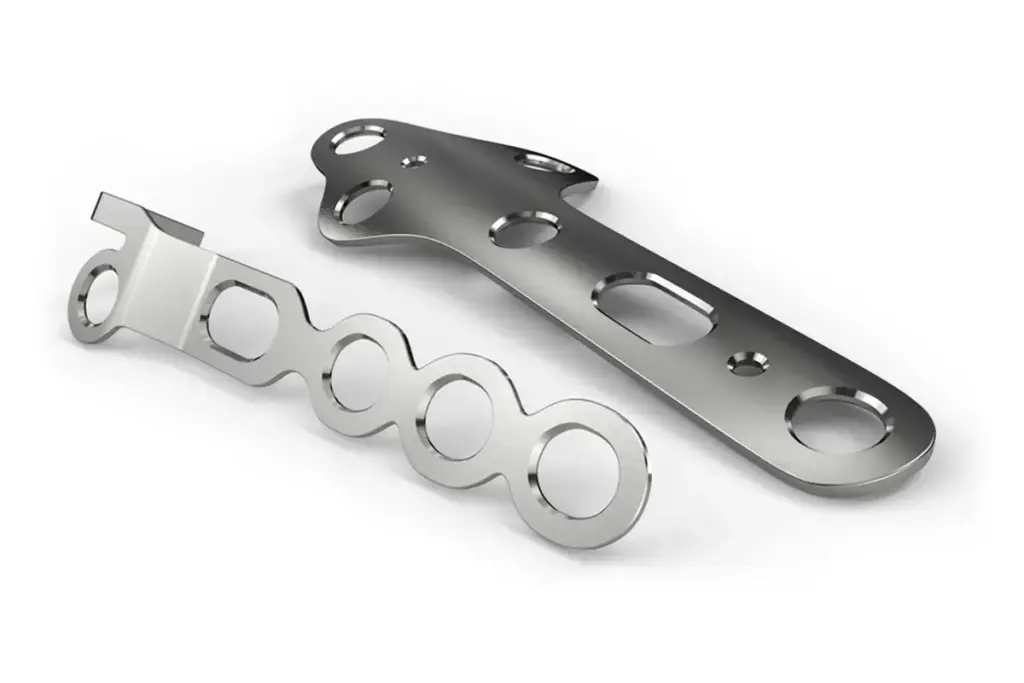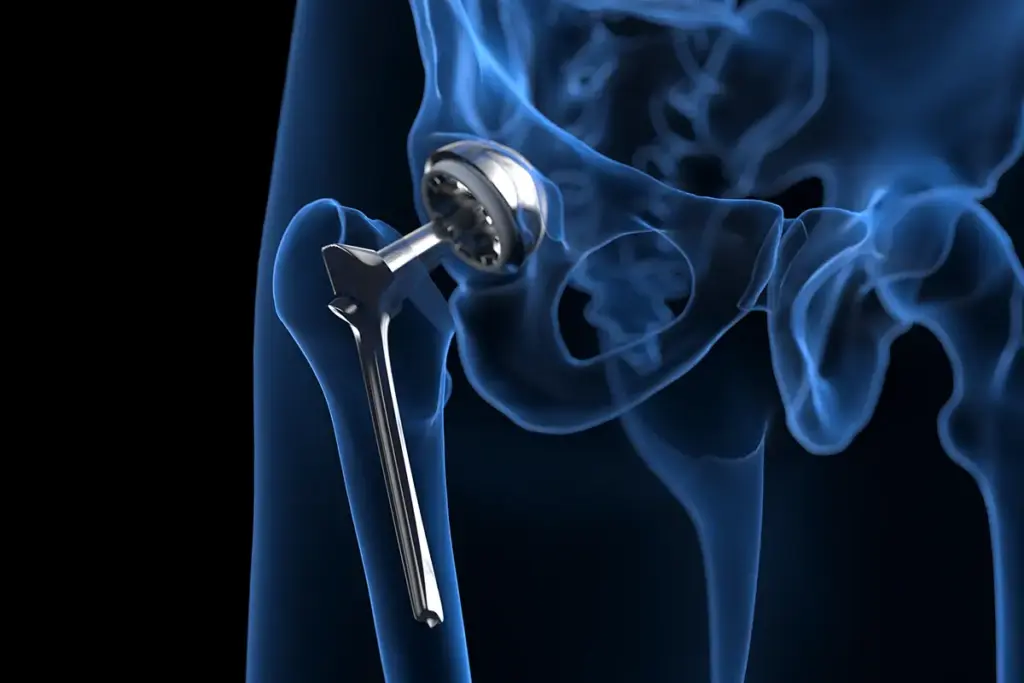Titanium in Medical Technology
Titanium plays a central role in medical technology and is indispensable for many applications. The material impresses with a combination of unique properties that make it ideal for use in the human body. Titanium is biocompatible and does not cause unwanted reactions in tissue, which is why it has proven itself for implants such as hip and knee joints, spinal implants and dental implants.
Another advantage of titanium in medical technology is its excellent corrosion resistance. This property is particularly important because many implants and medical devices are permanently exposed to bodily fluids. Surgical instruments also benefit from this property: titanium instruments are reusable, sterilizable and remain resilient and precise even after long-term use and frequent sterilization.
In addition to implants and instruments, titanium is also gaining importance in innovative technologies such as additive manufacturing. The ability to process titanium via 3D printing into custom-made forms allows the creation of individual medical solutions tailored precisely to the anatomy and needs of patients.
The various titanium grades commonly used in medical technology include both non-alloyed “pure titanium” such as Titanium Grade 1, Titanium Grade 2 and Titanium Grade 4 (according to ASTM F67 and ISO 5832-2) and alloyed titanium such as Titanium Grade 5 ELI (Ti6AL4V ELI / Titanium Grade 23, extra low interstitials, according to ASTM F136 & ISO 5832-3) and Ti6AL7Nb (according to ASTM F1295 & ISO 5832-11). The choice of material ultimately depends on the required load capacity, with alloyed titanium typically used for joint implants and bone screws and nails, while pure titanium is more commonly used in dental applications.
Applications of Titanium in Medical Technology

Traumatology
Titanium plays a central role in modern traumatology. Due to its unique properties such as high strength, low weight, corrosion resistance and biocompatibility, titanium is used in a variety of traumatic applications. Titanium has become an indispensable material in traumatology. Its unique properties greatly improve patient treatment outcomes and enable faster, complication-free recovery. Ongoing research and innovation in the field of titanium implants promise to further improve treatment options and the quality of life for patients worldwide.

Endoprosthesis
Titanium implants are known for their longevity, meaning that patients require fewer follow-up surgeries to replace worn-out or defective implants. Due to the low weight and high strength of titanium implants, patients can become mobile again faster, promoting rehabilitation and the restoration of quality of life.
Materials
Titanium Grade 1
Titanium Grade 2
Titanium Grade 3
Titanium Grade 4
Titanium Grade 5
Titanium Grade 5 ELI
Titanium Grade 7
Titanium Grade 9
Titanium Grade 11
Titanium Grade 12
Zirconium
Additional Materials
Semi-finished Products
Sheets
Plates
Bars
Tubes/Pipes
Strips/Coils
Forgings
Other Semi-finished Products
